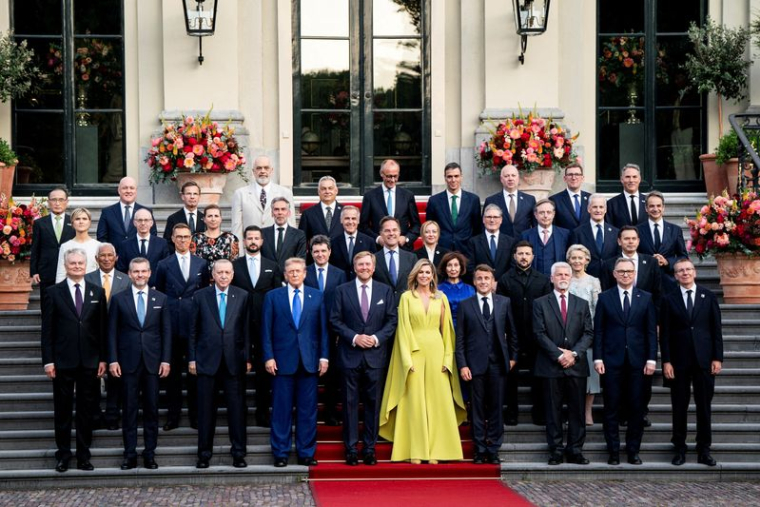
NATO summit in The Hague
by Andrew Gray, Sabine Siebold and Jeff Mason
NATO leaders are expected to adopt an objective of increasing their defense expenses at the Hague Summit on Wednesday, during which US President Donald Trump adopted a reassuring tone as to his commitment to protecting other members of the Transatlantic Alliance.
The new objective of defense expenditure, which should be set at 5% of the national domestic product (GDP) of member countries instead of 2% currently, responds to a request from the American president and to the growing fears of Europeans with regard to Russia since the invasion of Ukraine in early 2022.
NATO Secretary General Mark Rutte admitted that it was not easy for European countries and Canada to find additional funding, but deemed vital to do so.
“My colleagues are absolutely convinced that, given the threat represented by the Russians and the international security situation, there is no other solution,” he told the press.
Addressing the media before the opening of the summit, Donald Trump minimized the concerns relating to his commitment to mutual defense between Allies, provided for in article 5 of the NATO Charter: “We are with them to the end.”
He had previously sowed doubt on the subject on Tuesday by evoking “many definitions” of the joint defense pact linking the member countries of the Transatlantic Alliance.
Finnish president Alexander Stubb, whose country is border with Russia and joined NATO two years ago, said the Alliance was evolving.
“I think we are witnessing the birth of a new NATO, which means a more balanced NATO and a NATO that has more European responsibilities,” he told journalists.
The new objective of being adopted by NATO, which is expected to be achieved by member countries by 2035, represents a massive increase in the defense expenses of the Allies, several hundred billion dollars per year.
Modification of the calculation of expenses
However, the calculation would be modified: countries would devote 3.5% of their GDP to basic defense (troops and weapons in particular) and 1.5% to wider measures linked to defense, such as cybersecurity, protection of gas pipelines and oil pipelines or the adaptation of roads and bridges to the traffic of military vehicles.
The 32 NATO member countries have approved a declaration providing for the increase in defense spending, but Spain announced that it had reached an agreement with other members to be excluded from this 5%target.
Mark Rutte accepted an arrangement with the president of the Spanish government Pedro Sanchez as part of his efforts to offer Donald Trump a diplomatic victory and ensure that the summit takes place smoothly.
Spain said it did not expect its position to have repercussions.
Mark Rutte made the summit and his final declaration are brief and focus on the promise of expenses in order to avoid any friction with the White House tenant.
Ukrainian President Volodimir Zelensky, who has complicated relations with the American president, had to be content to attend the pre-summit dinner on Tuesday evening rather than at the main meeting on Wednesday, although a meeting with Donald Trump is planned.
Hungarian Prime Minister Viktor Orban has and as often heard a discordant voice by declaring to journalists that NATO had nothing to do in Ukraine and that Russia was not strong enough to represent a real threat to the Alliance.
The Kremlin accuses NATO of being in the process of frantic militarization and of portraying Russia as a “demon of hell” in order to justify its sharp increase in defense expenses.
(With Lili Bayer, Anthony Deutsch, Bart Meijer, Stephanie Van Den Berg, John Irish, Gram Slattery and Charlotte Van Campenhout; French version Camille Raynaud and Benjamin Mallet, edited by Jean-Stéphane Brosse)

